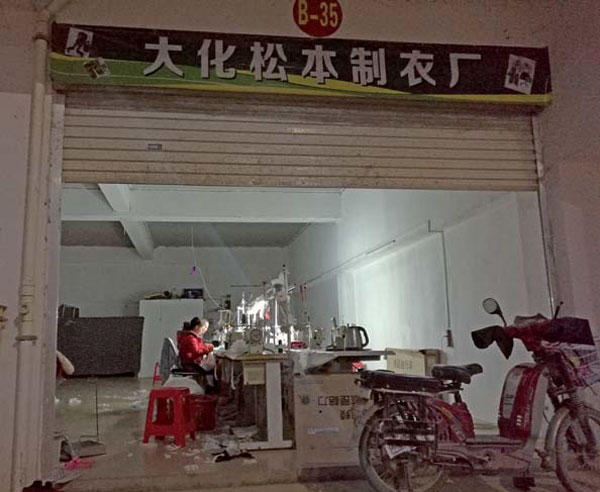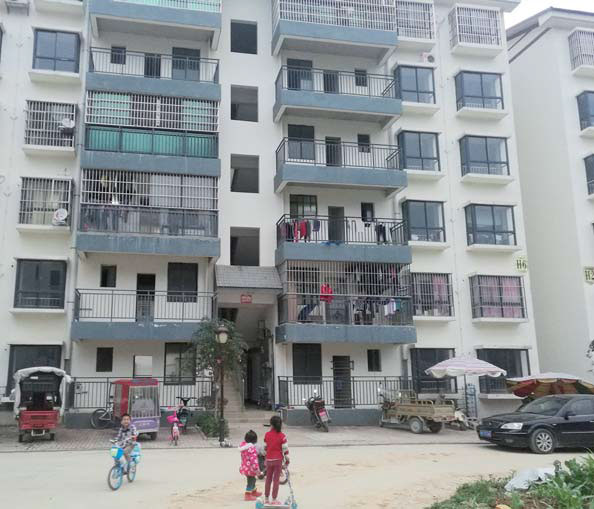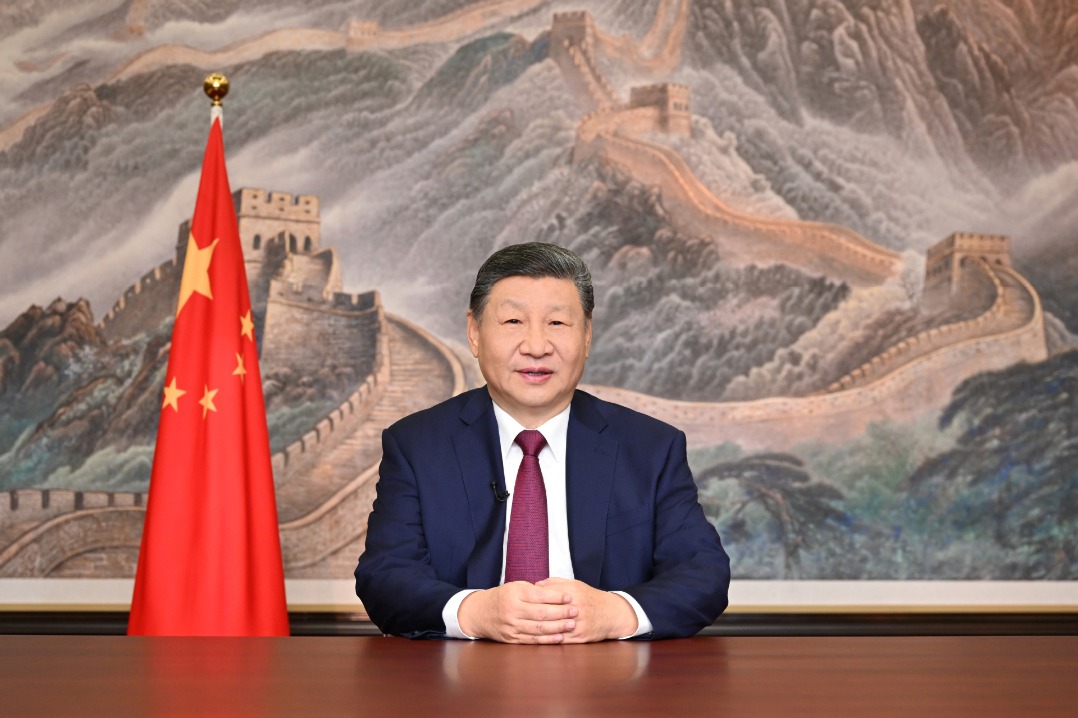Poor villagers moving out of hardship zone

In Dahua, a county northwest of Nanning, a program is underway to provide subsidized housing for the poor.
Since 2014, dozens of people have relocated from the nearby villages to Minzu Xin Cheng (roughly translated as "new ethnic town"), local officials say. The semi-urban site is located about 150 kilometers from Nanning, capital of Guangxi Zhuang autonomous region.
Of the county's 460,000 people, some 80,000 live below the poverty line, which is nationally defined as an annual household income of 2,300 yuan ($335; 314 euros; 267).
The project started with the building of the first apartments in 2012 and is scheduled to be completed in the next three years.
| Above and below: New apartments and workshops are being constructed in Dahua county, Guangxi, to help people relocating from remote rural areas. Photos Provided to China Daily |

Spread across 310 hectares, the site's plan includes multiple housing blocks, a hospital and a school. It is being developed by the Guangxi Wuzhou Baoheng Investment Co Ltd.
"We expect 360 rural families to move in this year," says Qin Jie, who works at the relocation office on-site.
Members of the Yao ethnic group, the area's dominant population, have lived in the surrounding mountainous villages for generations, growing corn and raising pigs or poultry for subsistence. The rocky terrain has made it tough for them to farm other crops, with the scant availability of groundwater adding to their woes.
Wei Reipeng, a 52-year-old security guard at the housing project, earlier led a similar life in Jiasi village about 20 kilometers away.
"Before coming here (in 2014), my income was unstable," he says, adding that he, his wife and their son together make 1,000 yuan a month these days doing different jobs.
The apartments - in sizes of up to 80 square meters - are being created in a county that is only partly urbanized. To a visitor, the complex could give the appearance of being in the middle of nowhere. But Qin says the new settlers will find economic engagement in future. The project has witnessed investment of 2.1 billion yuan to date, he adds.
At least two workshops for handmade clothing and an electrical hardware store were visible near new pavement at the site during a recent visit by China Daily.
By 2020, when China hopes to end absolute poverty, nearly 29,000 people in Dahua will need to be relocated.
The county government's relocation cost will likely be 240,000 yuan, including housing subsidy, for every poor family, Zhu Youkui, a top regional official, says.
Overall, Guangxi aims to spend 60 billion yuan on relocating more than a million poor people by 2020. He says the main objectives are to move out the poor from vulnerable areas, settle them down in places with better connectivity and resources, and help them find jobs and receive technical training, especially the middle-aged.
"The government has tried to move the affected people to places that aren't too far away from where they originally lived," Zhu, chief economist for the Guangxi government's poverty alleviation program, said in response to a question about those that might fear a loss of familiarity owing to relocation.
There are few examples of county-to-county relocations in Guangxi, he said.
In addition to areas with harsh topography, people are also relocated from remote villages where only a handful of families reside and investing in roads, for instance, is not financially feasible for the local administrations. The prefecture-level cities of Hechi in the north, and Baise, which borders Vietnam, have become Guangxi's major relocation hubs.
Zhu says three years are typically needed to complete the process of a single mass relocation.
But challenges lie ahead.
"Among them is the sustainability of the livelihoods of the resettled," Zhu says.
The central government has said 3.4 million people living in poverty nationwide will be moved out of remote areas this year.
Zhang Li contributed to this story.
(China Daily European Weekly 04/07/2017 page16)
Today's Top News
- Confidence, resolve mark China's New Year outlook: China Daily editorial
- Key quotes from President Xi's 2026 New Year Address
- Full text: Chinese President Xi Jinping's 2026 New Year message
- Poll findings indicate Taiwan people's 'strong dissatisfaction' with DPP authorities
- Xi emphasizes strong start for 15th Five-Year Plan period
- PLA drills a stern warning to 'Taiwan independence' separatist forces, external interference: spokesperson































